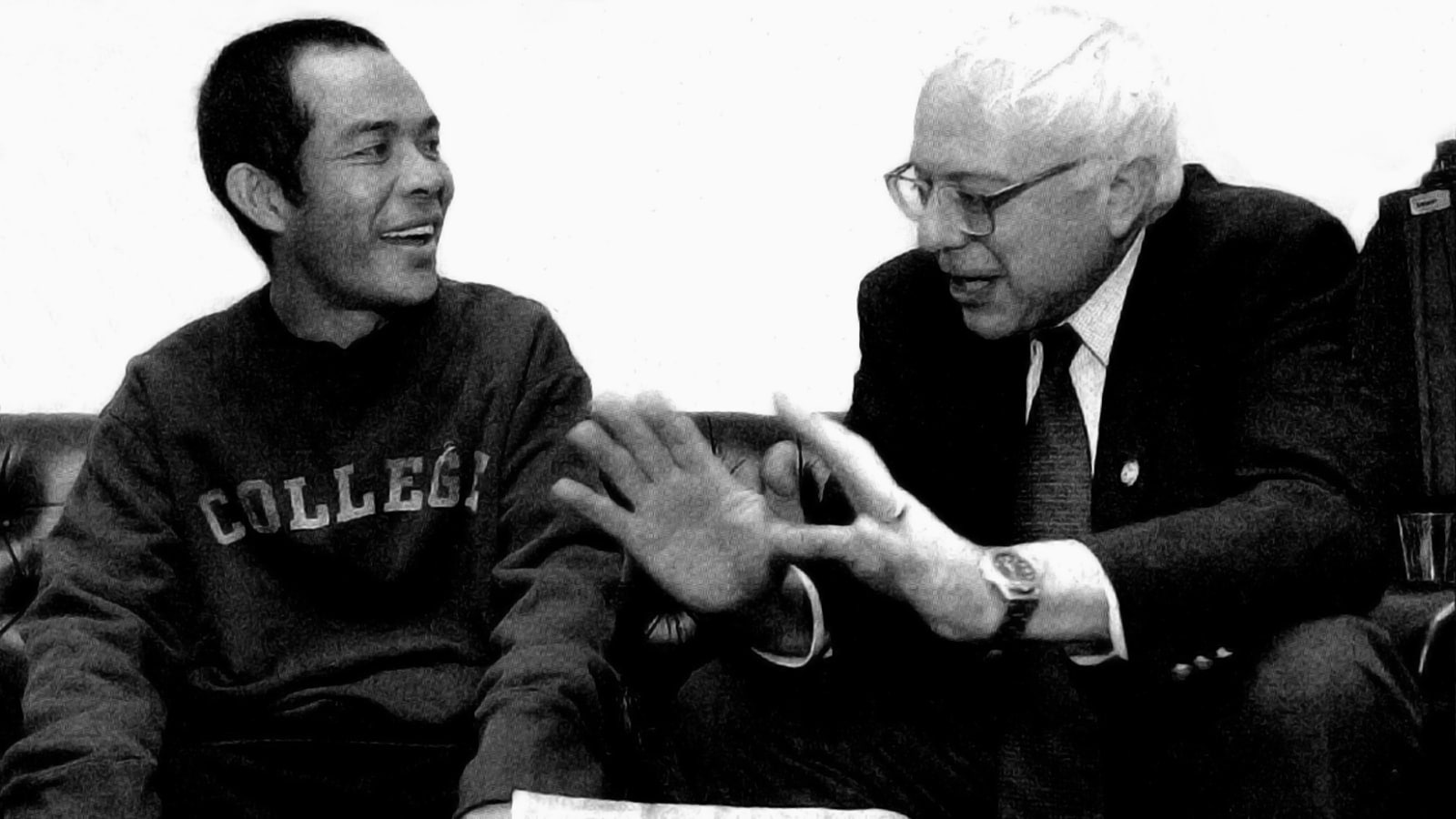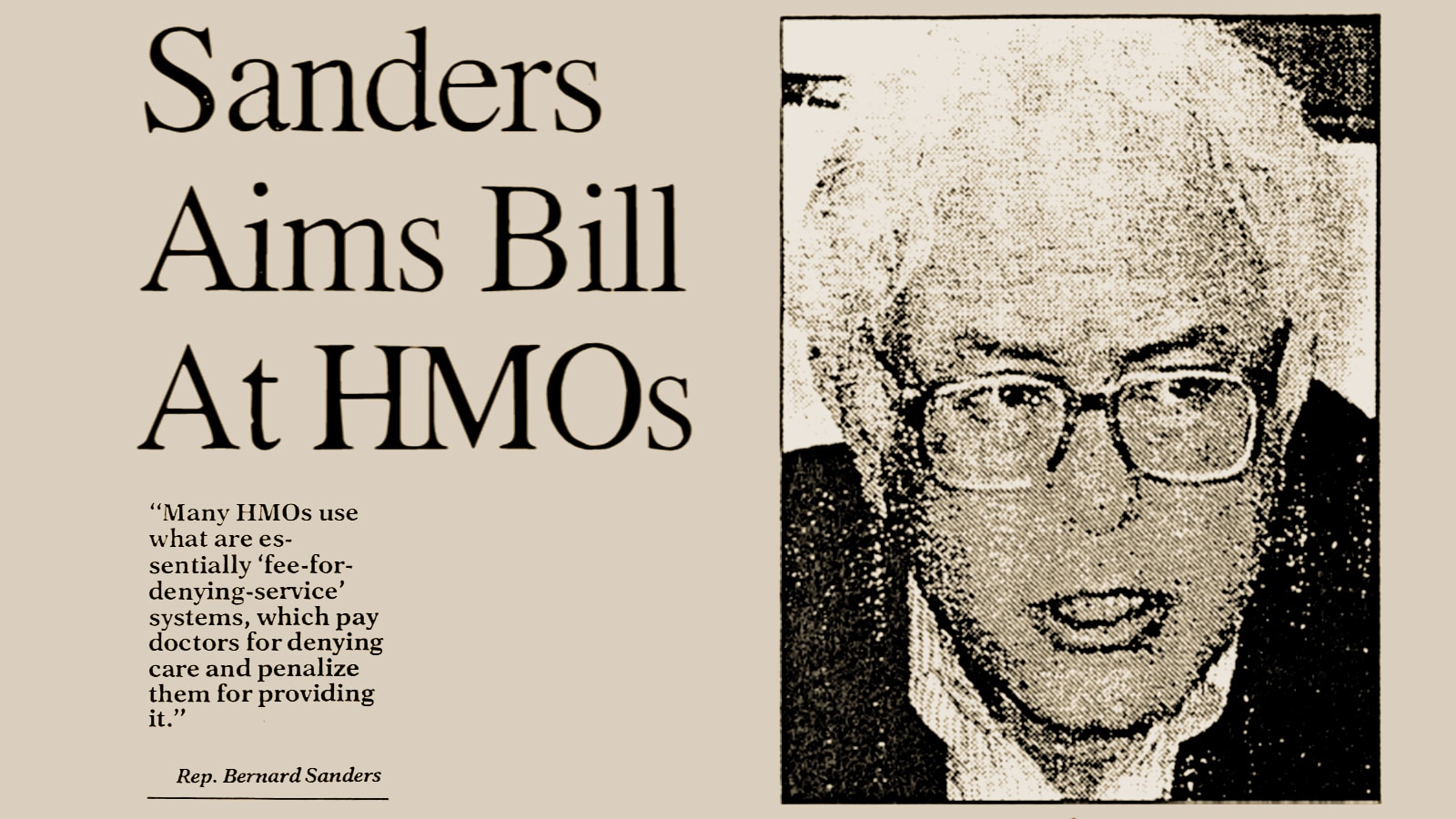Ngawang Choephel was a former Middlebury College student in Vermont and Tibetan Fulbright Scholar accused of espionage and arrested by the Chinese government while making a documentary on folk music in Tibet. Choephel studied ethnomusicology at Middlebury College as a Fulbright Scholar in 1992 and 1993. He was arrested when he returned to Tibet in 1995 to make a nonpolitical documentary film about traditional Tibetan music and dance and sentenced to 18 years in prison.[1][2]
Rep. Bernie Sanders and Sen. Patrick Leahy led the effort to secure Choephel’s release, calling out China’s human rights abuse and sending a letter to the Chinese government demanding specific information about his imprisonment. The lawmakers’ action was taken in response to a letter Sanders received from the Chinese Embassy accusing Choephel of being an American-funded spy.[1]
In 1996, Sanders organized a bi-partisan coalition of 44 members of Congress who joined him in writing a letter to President Jiang Zemin requesting Choephel’s release or a fair and public trial. Shao Wenguang, Counselor for the Embassy of the People’s Republic of China, wrote back to Sanders, stating, “We have learned that, funded by some Americans, Ngawang Choephel was sent by the Dalai Lama’s “government-in-exile” to Tibet, used the cover of so-called collecting Tibetan folk songs to gather sensitive intelligence and engaged in illegal separatist activities.” Sanders said this charge is especially disturbing since it carries the death penalty under Chinese law.”[1]
In 1997, the House passed Sanders’ amendment urging the release of Choephel. One day after the amendment passed, he urged Congress to go even further in saying that human rights abuses in China are unacceptable and requested that China be denied Most Favored Nation Status.[3]
Sanders’ amendment stated that Ngawang Choephel and other prisoners of conscience in Tibet and China should be released immediately; that the United States should seek Mr. Choephel’s release; that the U.S. should promote access to Tibet for international human rights groups; that the State Department should advise Americans that Tibet is not a safe destination for American travelers; and that the U.S. should continue to promote a resolution at future meetings of the U.N. Commission on Human Rights addressing human rights in China and Tibet until the situation improves substantially.[3]
Speaking on the House floor, Sanders said, “I am delighted that the House passed an amendment that I offered demanding that Ngawang Choephel be released immediately from a Chinese jail where he is being held on trumped-up charges. Unfortunately, Ngawang Choephel is not alone as a political prisoner in China. In fact, there are millions of them.”[3]
Sanders continued, “According to the U.S. State Department’s human rights report released earlier this year, ‘All public dissent against the party and government was effectively silenced by intimidation, exile, the imposition of prison terms, administrative detention, or house arrest. No dissidents were known to be active at year’s end.”‘[3]
Sanders concluded, “Congress should not be supporting Most Favored Nation Status with China when that country has no respect for civil liberties or the right of dissent. We should not be supporting the Most Favored Nation Status with China when we have a 39 billion dollar trade deficit, and corporate America is throwing tens of thousands of American workers out on the street as they move their factories to China and hire workers there for 20 or 30 cents an hour. Let us say yes to freedom for Ngawang Choephel and no to MFN with China.”[3]
Ngawang Choephel was released in 2002 after six years in prison, one month before President Bush was scheduled to visit the country. He met with Rep. Sanders on Capitol Hill shortly after his release and expressed gratitude for the work of the U.S. State Department, the Vermont congressional delegation, and Vermont residents for campaigning for his release since 1995.
“I would like to say thank you to the people in Vermont.”
 Back to Timeline
Back to Timeline


